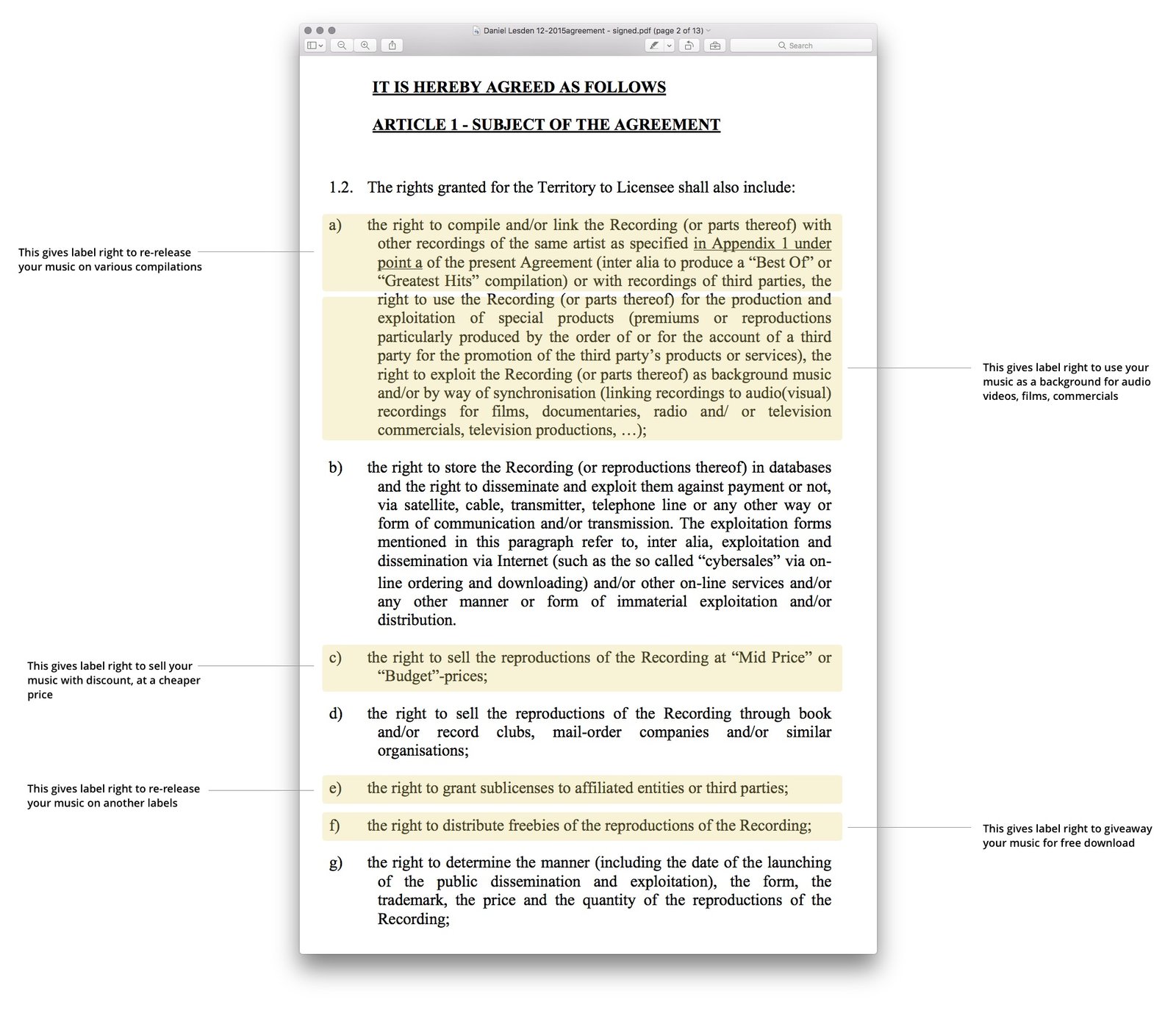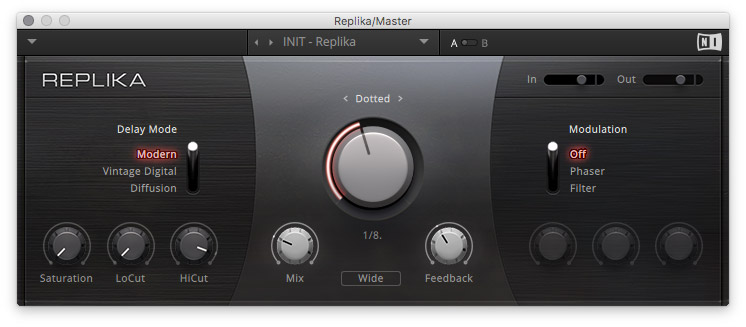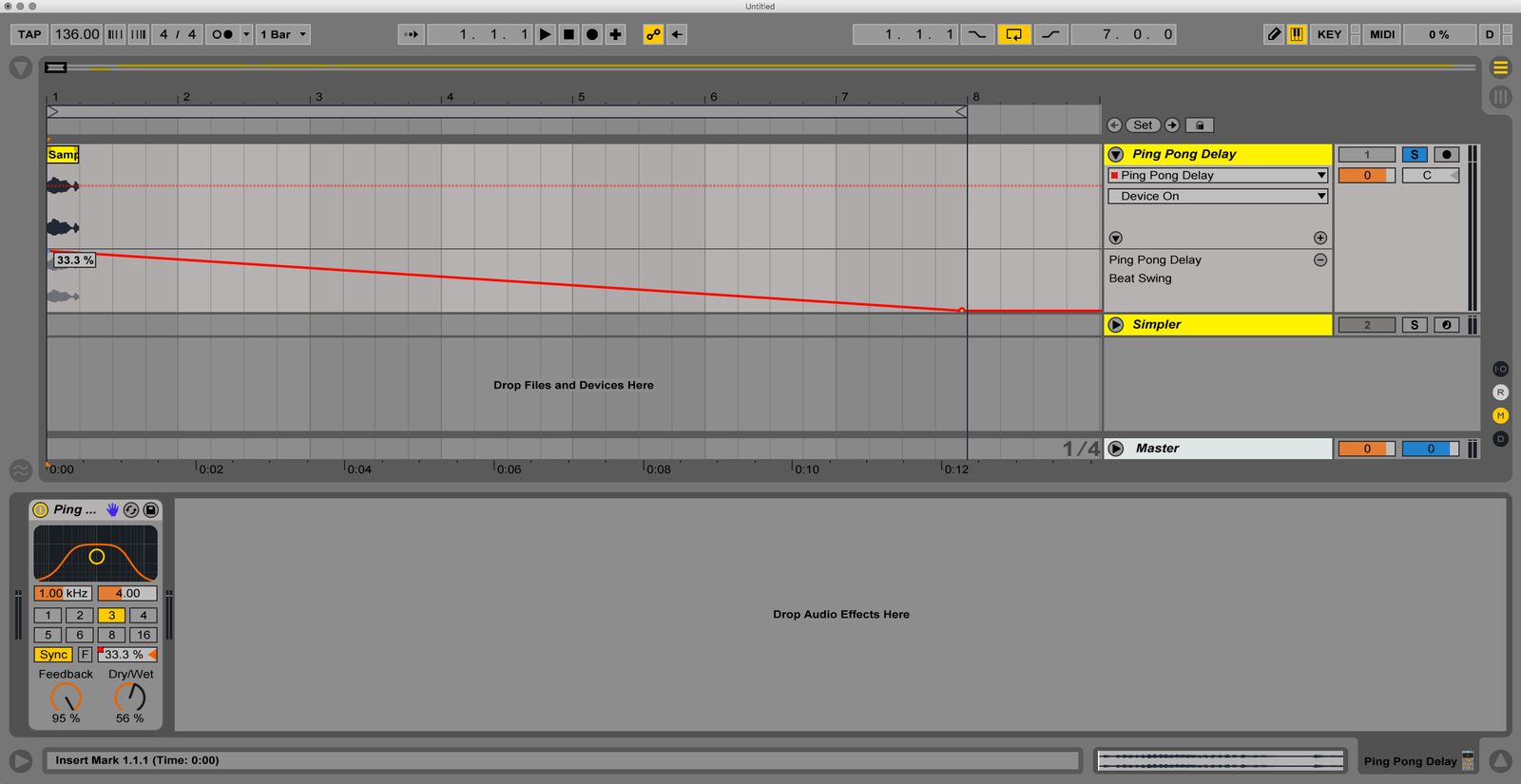“Label re-released a track without my consent”
Hi Daniel, I hope you can give me some advice. A year ago I released a track on the label. Today I’ve checked my Beatport artist profile out of curious and noticed that this release appeared on a different label without my consent. I’m pretty confused, is it a normal situation? Isn’t label needs artist’s consent for this?
William Paulsen
It depends on the deal you had with the label. Generally speaking, a typical record label deal implies transferring reproduction and exploitation rights to the label, which means they can use your music pretty much anything they like.
The problem is that most contracts are written in a too complex lawyer’s language, which only they can understand. Such contracts are difficult to read even for native English speakers, for non-natives it’s an even worse nightmare.
To non-native speakers: learn English
To give an example of what kind of rights you grant to the label with signing a contract, here are a few highlights in a typical contract and its “translation” to the human language:

Now answering your question — yes, the label can re-release your music on other labels, unless the opposite is clearly specified. And they no need to ask for the artist permission or consent because you already gave it when signed the contract.
For example, back in 2015 I had an EP on Digital Om Productions called “Thru The Stars”. A few months later, the A-side track also appeared on a VA compilation released by Yellow Sunshine Explosion. To make it happen, YSE had to contact Digital Om to get permission and pay for it. As you can see, this is purely label-to-label communication without artists being involved.
Thru The Stars, Digital Om Productions
This process is called “sub-licensing”, and it’s absolutely normal. The good news is that you as an artist should also receive some extra fee for this, usually $100 per track. So my advice is to don’t panic, just wait for the next royalty statement from your label and see if it includes the sub-licensing.
And read the contract carefully next time, don’t hesitate to ask your label to clarify if something confuses you.



